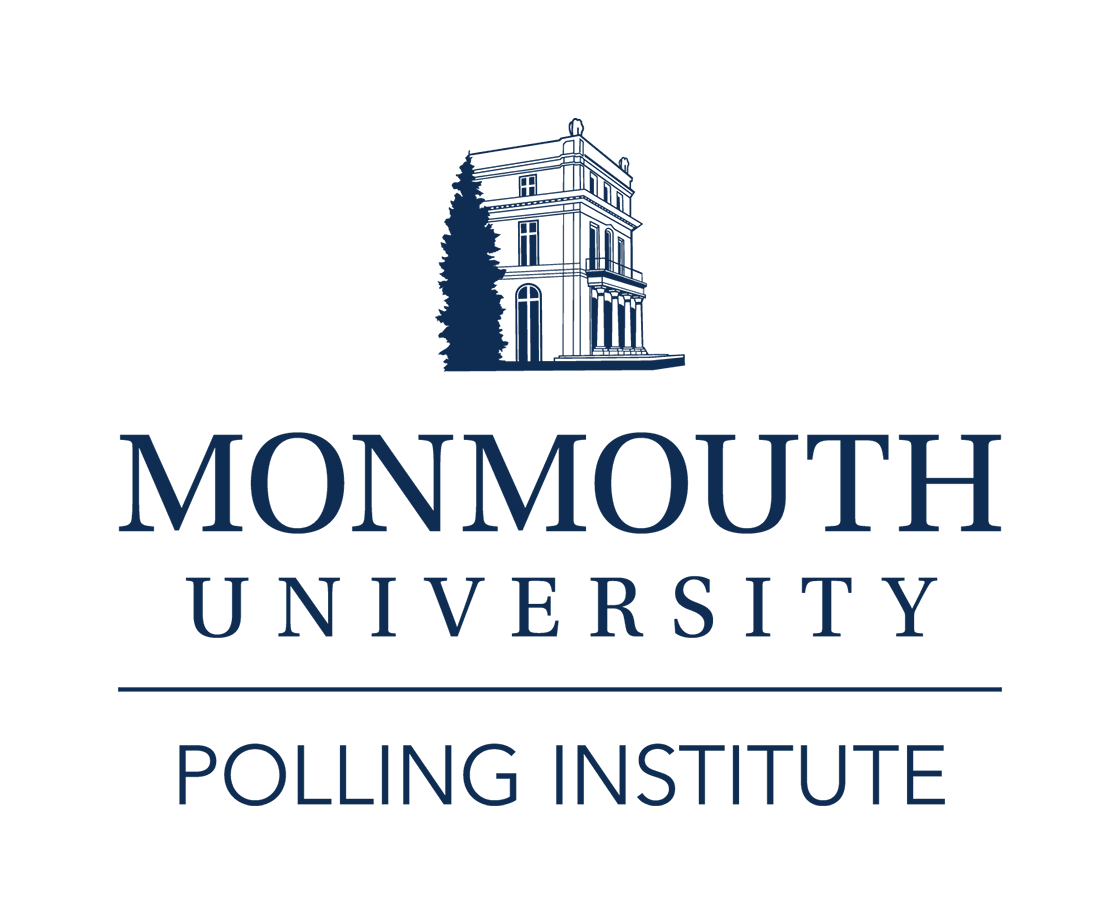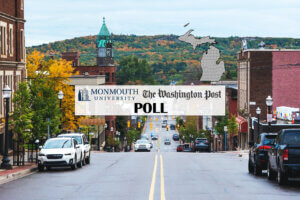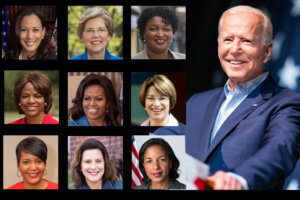West Long Branch, NJ – Michigan is the first primary in a major industrial state. The Monmouth University Poll finds Hillary Clinton with a 13 point advantage in the Democratic race while Donald Trump holds an identical 13 point lead in the Republican contest. Ted Cruz and John Kasich are vying for second in the GOP primary, while Marco Rubio is trying to meet the delegate threshold. The poll also indicates there might be some late shifts in voter support.
— Republican primary —
Donald Trump currently has the support of 36% of likely GOP primary voters in Michigan, which is significantly higher than the support levels of any of his rivals. Ted Cruz clocks in at 23%, John Kasich has 21%, and Marco Rubio has 13%. Candidates must reach a 15% threshold to be eligible for at-large delegates. Ben Carson, who officially dropped out of the race on Friday, has 1% support in the poll due to voters who already cast their ballots.
Trump is winning among both lower and higher income voters, getting 41% support among those earning less than $50,000, 37% among those earning $50,000 to $100,000, and 32% of those earning $100,000 or more. The GOP race is closer among evangelical Christians – 31% Trump, 31% Cruz, 15% Kasich, 13% Rubio – than it is among non-evangelicals – 39% Trump, 27% Kasich, 17% Cruz, 13% Rubio. However, evangelicals make up less than half of the likely electorate. Trump trails among voters who describe themselves as very conservative. This group, which makes up just over one-third of the electorate, go for Cruz (42%) over Trump (26%), but Trump leads among both somewhat conservative (44%) and moderate (36%) voters. Kasich is in second place with these groups (21% somewhat conservative and 31% moderate).
“After this past weekend’s mixed bag of results, Trump appears positioned for a win in Michigan, but the race may be tightening in the final hours.” said Patrick Murray, director of the independent Monmouth University Polling Institute. “Trump’s support may be dropping, while Kasich’s star could be rising.”
In interviews conducted Thursday and Friday, Trump held a solid lead with 39% support compared to 22% for Cruz, 17% for Kasich, and 14% for Rubio. The race was much tighter in Saturday and Sunday interviews at 32% for Trump, 26% for Kasich, 25% for Cruz, and 12% for Rubio.
With all the discussion about hands in this election, Monmouth decided to test how Rubio and Cruz would do mano a mano against Trump. Although Rubio is struggling to make the delegate threshold in a four-way race, he would virtually tie Trump in a hypothetical two-person contest – 46% for Rubio and 45% for Trump. Cruz, though, does better, beating Trump 48% to 41% head to head. In the Rubio-Trump contest, both Cruz and Kasich voters would split at more than 2-to-1 for Rubio. However, in the Cruz-Trump matchup, Rubio voters would go 3-to-1 for Cruz, while Kasich voters would split at half for Cruz and less than 1-in-5 for Trump with another 1-in-4 saying they would not vote at all.
If Trump emerges as the GOP nominee, 7-in-10 Michigan Republican primary voters (71%) say they would get behind him in a general election against Hillary Clinton. However, 9% would actually vote for Clinton. While the following responses were not offered in the poll question itself, 4% volunteer that they would vote 3 rd party, 9% say they would not vote at all, and 7% are not sure what they would do.
In terms of Republican voter commitment in Tuesday’s primary, 13% of Republican voters have already cast their ballots and 36% say they are completely decided on their candidate choice before they head to the polls. Another 29% have a strong preference but are still open to considering other candidates. Nearly 1-in-4 either have only a slight preference (9%) or are basically undecided (14%) just days before Tuesday’s election. Supporters of Trump (58%) are slightly more likely than Cruz (52%) or Rubio (47%) voters to say they have already voted or that their choice is locked in, with Kasich supporters (37%) being less certain.
— Democratic primary —
Hillary Clinton currently holds a 55% to 42% lead over Bernie Sanders in the Michigan Democratic primary. Clinton enjoys a solid edge among non-white voters (68% to 27%), who make up more than one-fourth of the likely electorate. Clinton (49%) and Sanders (48%) are virtually tied among white voters. Clinton has a 57% to 40% lead among voters who earn less than $50,000 a year, and a 54% to 42% lead among those who earn $50,000 or more. Sanders holds a solid lead (58% to 39%) among voters under the age of 50, but this is offset by Clinton’s more than 2-to-1 advantage among voters age 50 and older (65% to 31%).
“Clinton had Michigan all to herself eight years ago after her opponents pulled out when the state violated party rules in scheduling its primary too early. This time she appears to be holding on in the face of a tough challenge from Sanders,” said Murray. Note: nearly all the interviews for this poll were conducted before Sunday night’s debate.
One-in-ten voters (11%) say they have already cast their ballots in the Democratic primary and another 49% say they have completely decided on their candidate choice. Clinton voters (65%) are slightly more likely than Sanders supporters (58%) to say their choice is locked in, with Clinton voters being twice as likely to have already mailed in their ballots. Another 25% of Democrats have a strong preference but are still open to considering other candidates and 8% have only a slight preference, while 6% say they are still really undecided.
In light of recent controversy over the city of Flint’s water supply, 6-in-10 voters (62%) say that the issue of drinking water quality is very important to their vote for the Democratic nomination and 24% say it is somewhat important. However, few voters see a significant difference in how the two candidates would handle this issue. Just 18% say Clinton would do a better job protecting water quality and a similar 17% say the same about Sanders. Most (61%) say the two candidates would perform equally as well on this issue.
Most Michigan Democratic primary voters (75%) believe that Clinton will eventually become the party’s nominee, including half of Sanders supporters. Just 17% of all primary voters think Sanders will be able to pull it off.
The Monmouth University Poll was conducted by telephone from March 3 to 6, 2016 with 402 Michigan voters likely to vote in the Republican presidential primary and 302 Michigan voters likely to vote in the Democratic presidential primary. The Republican likely primary voter sample has a margin of error of ± 4.9 percent and the Democratic likely primary voter sample has a margin of error of ± 5.6 percent. The poll was conducted by the Monmouth University Polling Institute in West Long Branch, NJ.
DATA TABLES
The questions referred to in this release are as follows:
(* Some columns may not add to 100% due to rounding.)
ASKED OF LIKELY REPUBLICAN PRIMARY VOTERS:
R1. If the Republican primary election for president was today, would you vote for – [NAMES WERE ROTATED]
| March 2016 | |
| Donald Trump | 36% |
| Ted Cruz | 23% |
| John Kasich | 21% |
| Marco Rubio | 13% |
| Ben Carson* | 1% |
| (VOL) Other | 1% |
| (VOL) Undecided | 5% |
| (n) | (402) |
* Carson’s name was included in the list read to voters on Thursday only. His support from that night was re-assigned to voters’ second choice. Remaining Carson support in this table is from early voters who have already cast their ballots.
R2. Which of the following best describes where your decision stands at this moment: I am completely decided on which candidate I will support, I have a strong preference right now but I am willing to consider other candidates, I have a slight preference among a group of candidates I like, or I am really undecided among a number of candidates?
| March 2016 | |
| Already voted early | 13% |
| Completely decided | 36% |
| Strong preference | 29% |
| Slight preference | 9% |
| Undecided | 14% |
[QUESTIONS R3 & R4 WERE ROTATED]
R3. If it came down to the following two candidates, who would you support – [NAMES WERE ROTATED]
| March 2016 | |
| Donald Trump | 45% |
| Marco Rubio | 46% |
| (VOL) No one | 5% |
| (VOL) Undecided | 4% |
R4. If it came down to the following two candidates, who would you support – [NAMES WERE ROTATED]
| March 2016 | |
| Donald Trump | 41% |
| Ted Cruz | 48% |
| (VOL) No one | 8% |
| (VOL) Undecided | 3% |
R5. If Trump became the nominee, who would you vote for in the general election in November – Donald Trump or Hillary Clinton?
| March 2016 | |
| Donald Trump | 71% |
| Hillary Clinton | 9% |
| (VOL) Other | 4% |
| (VOL) No one | 9% |
| (VOL) Undecided | 7% |
ASKED OF LIKELY DEMOCRATIC PRIMARY VOTERS:
D1. If the Democratic primary election for president was today, would you vote for – [NAMES WERE ROTATED]
| March 2016 | |
| Hillary Clinton | 55% |
| Bernie Sanders | 42% |
| (VOL) Other | 0% |
| (VOL) Undecided | 4% |
| (n) | (302) |
D2. Which of the following best describes where your decision stands at this moment: I am completely decided on which candidate I will support, I have a strong preference right now but I am willing to consider other candidates, I have a slight preference among a group of candidates I like, or I am really undecided among a number of candidates?
| March 2016 | |
| Already voted early | 11% |
| Completely decided | 49% |
| Strong preference | 25% |
| Slight preference | 8% |
| Undecided | 6% |
D3. Who do you think is going to win the Democratic nomination – Clinton or Sanders?
| March 2016 | |
| Clinton | 75% |
| Sanders | 17% |
| (VOL) Don’t know | 8% |
D4. How important is the issue of drinking water quality to your vote for the Democratic presidential nomination – very important, somewhat important, not too important, or not at all important?
| March 2016 | |
| Very important | 62% |
| Somewhat important | 24% |
| Not too important | 7% |
| Not at all important | 7% |
| (VOL) Don’t know | 1% |
D5. Who do you think would do a better job on protecting drinking water quality – Clinton or Sanders, or would they do equally as well?
| March 2016 | |
| Clinton | 18% |
| Sanders | 17% |
| Equally well | 61% |
| (VOL) Neither | 1% |
| (VOL) Don’t know | 3% |
The Monmouth University Poll was sponsored and conducted by the Monmouth University Polling Institute from March 3 to 6, 2016 with a statewide random sample of Michigan voters drawn from a list of registered voters, who participated in a primary election in 2012 or 2014 or voted in both of the last two general elections, and indicate they will vote in the presidential primary on March 8, 2016. Monmouth is responsible for all aspects of the survey design, data weighting and analysis. Final sample is weighted for age and gender based on state registration list information on the pool of voters who participate in primary elections. Data collection support provided by Braun Research (field) and Aristotle (voter list). The total sample of 704 likely voters includes 444 contacted by a live interviewer on a landline telephone and 260 contacted by a live interviewer on a cell phone, in English.
For results based on the sample of 402 likely Republican primary voters, one can say with 95% confidence that the error attributable to sampling has a maximum margin of plus or minus 4.9 percentage points (unadjusted for sample design). For results based on the sample of 302 likely Democratic primary voters, one can say with 95% confidence that the error attributable to sampling has a maximum margin of plus or minus 5.6 percentage points (unadjusted for sample design). Sampling error can be larger for sub-groups (see table below). In addition to sampling error, one should bear in mind that question wording and practical difficulties in conducting surveys can introduce error or bias into the findings of opinion polls.
| POLL DEMOGRAPHICS (weighted) | ||
| LIKELY REPUBLICAN PRIMARY VOTERS | ||
| 53% Male | 12% 18-34 |
94% White |
| 47% Female | 26% 35-49 |
1% Black |
| 36% 50-64 |
4% Hispanic | |
| 27% 65+ |
1% Other | |
| POLL DEMOGRAPHICS (weighted) | ||
| LIKELY DEMOCRATIC PRIMARY VOTERS | ||
| 40% Male | 16% 18-34 |
71% White |
| 60% Female | 24% 35-49 |
20% Black |
| 34% 50-64 |
6% Hispanic | |
| 27% 65+ |
3% Other | |
Click on pdf file link below for full methodology and results by key demographic groups.




